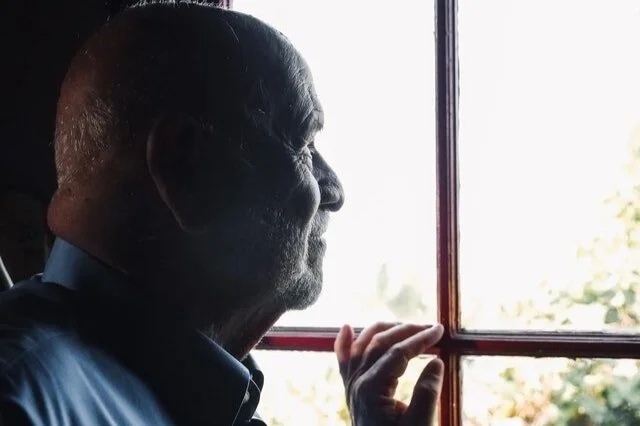Ecclesiastes 9:1-6
DEATH COMES TO ALL - "But all this I laid to heart, examining it all, how the righteous and the wise and their deeds are in the hand of God. Whether it is love or hate, man does not know; both are before him. It is the same for all, since the same event happens to the righteous and the wicked, to the good and the evil, to the clean and the unclean, to him who sacrifices and him who does not sacrifice. As the good one is, so is the sinner, and he who swears is as he who shuns an oath. This is an evil in all that is done under the sun, that the same event happens to all. Also, the hearts of the children of man are full of evil, and madness is in their hearts while they live, and after that they go to the dead. But he who is joined with all the living has hope, for a living dog is better than a dead lion. For the living know that they will die, but the dead know nothing, and they have no more reward, for the memory of them is forgotten. Their love and their hate and their envy have already perished, and forever they have no more share in all that is done under the sun" (Ecclesiastes 9:1-6).
No matter who we are, where we live, or what upbringing we've had, the simple truth is that one day we all will suffer the same fate: Death.
Solomon continues to build upon his foundation of life's pillars of wisdom throughout Ecclesiastes by reminding us that our time here on earth is limited.
No man knows when death will come for him or his loved ones because God holds our lives in the palm of His hand. In His sovereignty, He ordains the hour of our death just as He anoints the moment of our creation.
"For you formed my inward parts; you knitted me together in my mother's womb. I praise you, for I am fearfully and wonderfully made. Wonderful are your works; my soul knows it very well" (Psalm 139:13-14).
Therefore, we can rest assured that God is in complete control of our lives whether we acknowledge His deity or not. Death comes to us all, so how should we respond?
Similar to Ecclesiastes 8:14-17, our flesh desires to know how much time we have left before we die. Psychologically, we assume knowing how much time is left on our mortality clock will make all the difference and help shape the trajectory of our lives, or will it?
Assuming we knew what day would be our last, how would we choose to live? Would we take more risks? Would we live with purpose? Who or what would we prioritize with our time? Would our lives be marked by foolishness and irresponsibility or wisdom and diligence?
Undoubtedly, many would choose to live without abandon and assume they could reconcile their lives with God immediately before the clock runs out. Thus, there would be no need for "early" eternal preparation because we would have complete knowledge regarding our life span.
Unfortunately, God does not work that way and we are foolish if we think we can live independent from Him as if we actually did know how much time we had left before we came to repentance.
Scripture declares, "Be on guard, keep awake. For you do not know when the time will come" (Mark 13:33).
The time Jesus alludes to in this passage concerns the end-times, but we can easily relate to its wisdom concerning the limited time we have to reconcile our salvation. That is why Jesus taught the parable of the 10 virgins in Matthew 25 as a warning that delaying a decision to repent and be born-again is a limited-time offer.
The clock will expire and those who procrastinate or assume they do not need God will hear the Lord proclaim in final judgment, "Truly, I say to you, I do not know you" (Matthew 25:12).
Yet in some ways, death is a gift from God just as the birth of a newborn baby is as well. While some may balk at the notion of death being a gift when viewed through the lens of what caused a particular death, we as Christians understand that death symbolizes so much more.
Paul reminds us, "Do you not know that all of us who have been baptized into Christ Jesus were baptized into his death? We were buried therefore with him by baptism into death, in order that, just as Christ was raised from the dead by the glory of the Father, we too might walk in newness of life. For if we have been united with him in a death like his, we shall certainly be united with him in a resurrection like his" (Romans 6:3-5).
Death itself plays an integral part in the Gospel message, for Christ had to be crucified and killed on our behalf to pave the way for reconciling man back to God. And similarly, when we die our mortal bodies are left behind and our spirits reunited with Christ in His glory with God the Father in heaven.
Therefore, we who have accepted Christ as Lord and Savior can confidently proclaim, "Even though I walk through the valley of the shadow of death, I will fear no evil, for you are with me; your rod and your staff, they comfort me" (Psalm 23:4).
It takes great maturity though to view death as a precious gift from God. For those of us who witness death due to tragedy, illness, or perhaps as a result of heinous evil, accepting this truth is difficult indeed. However, if they who died are followers of Christ or have not reached the age of accountability, we are comforted in knowing that their eternal resting place is not only safe and secure, but the greatest destination we could ever wish for regardless of what caused their death.
Consequently, we who remain here on earth must reconcile our perspective regarding death, both for ourselves, our loved ones, the world at large, and even our enemies; for how we view death reflects whether we are self-centered or kingdom-focused. Self-centeredness views death from the angle of how death affects ME, usually resulting in bitterness, depression, and an incapacity to simply move-on.
In contrast, kingdom-focused perspective views death as a celebration for those who accept Christ, creates a passionate desire for Evangelism, and elicits sorrowful mourning for those who choose by their own volition to reject the gift of saving grace God offers. Therefore, we must discern our heart's intent as we reflect upon the deceased to reveal whether our focus remains self-centered and inward, or kingdom-focused and outward. It is no different than what James proclaimed in his warnings against worldliness.
"Draw near to God, and he will draw near to you. Cleanse your hands, you sinners, and purify your hearts, you double-minded. Be wretched and mourn and weep. Let your laughter be turned to mourning and your joy to gloom. Humble yourselves before the Lord, and he will exalt you" (James 4:8-10).
For when we begin to view life and death from God's perspective, we realize as Solomon did that all is vanity apart from God. Of course, that does not dismiss mourning as irrelevant or wrong. Mourning the loss of a loved one helps purge sorrow and grief from our bodies so that we may heal emotionally, but it cannot become a stronghold in our lives which binds us from moving on. We must view death in its proper context if we are to glean the wisdom Solomon intends.
Bottom-line, we must recognize that death as we typically perceive it is physical. However, death in the spiritual sense is a completely different story. As Christians we believe those who are born-again live for eternity in heaven. The physical body has ceased to exist, but the spiritual body lives on because we have placed our eternal faith in the atoning sacrifice of Jesus Christ on our behalf.
Therefore, we who have reconciled and applied Ephesians 2:8-9 in our hearts can confidently proclaim, "O death, where is your victory? O death, where is your sting?" (1 Corinthians 15:55), because "the sting of death is sin, and the power of sin is the law. But thanks be to God, who gives us the victory through our Lord Jesus Christ" (1 Corinthians 15:56-57).
Conversely, those who have not accepted Christ physically die just as we do, but their lack of faith and trust in Jesus as Lord and Savior condemns them to their eternal resting place in hell, where there is no end to the continual torment and torture they experience for eternity as well.
Therefore, we must be careful to understand and convey to others that spiritual death has no finality whatsoever. We will all spend eternity in heaven or hell based on our own personal decision to accept or reject Biblical truth, which is a never-ending choice.
Keep in mind, Scripture does instruct us to die to our fleshly desires in order to avoid God's judgment, but that instruction is behavioral-focused and not the intent of Solomon's emphasis in Ecclesiastes 9.
"Put to death therefore what is earthly in you: sexual immorality, impurity, passion, evil desire, and covetousness, which is idolatry. On account of these the wrath of God is coming" (Colossians 3:5-6).
Therefore, what we do with our lives is solely our decision, but we will give an account for the eternal choice we make whether we like it or not (and no decision whatsoever is a choice in and of itself for which we will be judged as well.)
What we must never forget though is that God extends grace and mercy to those who humble themselves and seek forgiveness and reconciliation for their sins, and we are called to share that Gospel message with others lest anyone suffer for all eternity the consequences of their pride and disbelief.
"For thus says the One who is high and lifted up, who inhabits eternity, whose name is Holy: 'I dwell in the high and holy place, and also with him who is of a contrite and lowly spirit, to revive the spirit of the lowly, and to revive the heart of the contrite" (Isaiah 57:15).
Will we then love our neighbors enough to share the Good News of Jesus Christ with them, or will we shrink back in fear of persecution or discomfort because we're either not comfortable talking about Jesus or worried we will offend their personal beliefs? The choice is ours.































